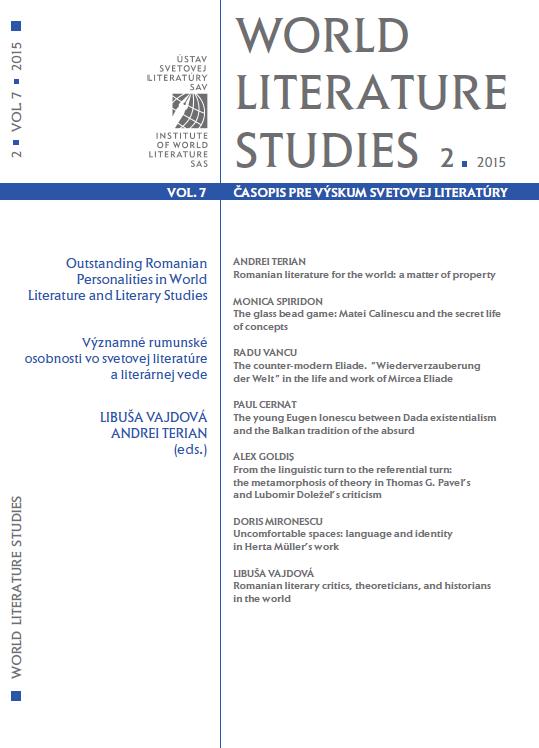The young Eugen Ionescu between Dada existentialism and the Balkan tradition of the absurd
The young Eugen Ionescu between Dada existentialism and the Balkan tradition of the absurd
Author(s): Paul CernatSubject(s): Literary Texts
Published by: SAV - Slovenská akadémia vied - Ústav svetovej literatúry
Keywords: Eugen Ionescu/Eugene Ionesco; Dada existentialism; Balkanism; Absurdism; Modernism; Cultural identity
Summary/Abstract: This study focuses on the relationship between the early writing of Romanian author Eugen Ionescu’s (who was to become, after 1949, the French writer Eugène Ionesco) and his avantgarde plays, from the perspective of the relationship with the Romanian tradition of the absurd. On the one hand, the study discusses the playwright’s, the poet’s, and the essayist’s particular affinity with the Dada spirit of Tristan Tzara and Urmuz (an atypical forerunner of the avantgarde). However, on the other hand, through his constant admiration for Ion Luca Caragiale, whom he considered the greatest unknown playwright in the world, Ionescu regains a repressed, but authentic and productive Balkan tradition, located somewhere between traditionalism and modernism, which was an object of obsession for the intellectuals in interwar Romania. By assuming and exporting it to the Parisian stage, the author’s ambiguous Romanian and French identity tries to break free from the complex of belonging to a peripheral culture, lacking access to universality. The fusion between Dadaist playful anarchism and the Balkan tradition of the absurd implies, in Ionescu’s case, the discovery and recovery of an alternative modernity, with a considerable subversive potential. Its elements can be found in his essay -volume Nu (No, 1934), whose playful and nonconformist existentialism, with a metaphysical scent and a deconstructive vitality, contains the embryo of all the playwright’s later qualities, which can be traced to his La cantatrice chauve (The Bald Soprano) and La leçon (The Lesson).
Journal: World Literature Studies
- Issue Year: VII/2015
- Issue No: 2
- Page Range: 36-48
- Page Count: 13

